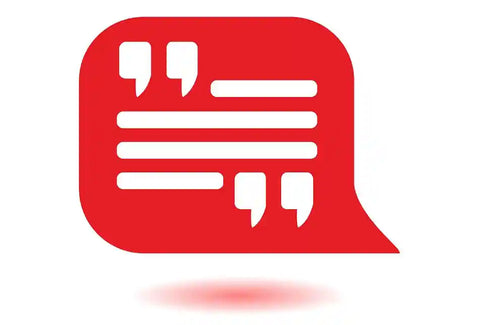Recycling Old Writing for New Publication Venues
There was a time when a scholarly paper rejected by a few journals or a doctoral thesis that did not find immediate publication would languish at the back of a desk drawer until its author moved house or office, rediscovered that old writing and finally decided to lighten his or her load by disposing of it for good, ideally in one of those first recycling bins. With the incredibly wide and varied range of publication options available to authors these days, however, such a rediscovery can inspire a very different and more rewarding kind of recycling.
In fact, there are now so many possibilities for disseminating scholarship online that many academics and scientists feel there is simply not enough time to produce the large amount of text they could effectively use and to post it on a regular basis. There are blogs and web sites eager to welcome guest authors with material that would interest their readers and attract new audiences, or, if you prefer, it is relatively easy and inexpensive to establish your own blog or web site, though it will take some time to build the kind of readership already earned by popular blogs and sites. Scholarly platforms such as Academia.edu that are designed for sharing advanced research and social networking sites such as LinkedIn that promote professional connections and discussions via individual and group web pages provide excellent options for posting thoughtful text in virtually all subject areas. Even Facebook and Goodreads offer opportunities to share your thoughts in online discussions, and self-publishing possibilities for long or short documents are numerous as well, with some of them free or very inexpensive to use, whether you would like to produce an electronic book or an illustrated paperback.
Where and how you choose to recycle your old writing is up to you, of course, and a little research will help you discover what will suit you best, but no matter which option(s) you pursue, keep in mind the permanence and accessibility of your online identity. There is nothing wrong with sharing older research – groundbreaking work is rare even for current projects and knowledge advances very slowly in some disciplines – but it is always wise to review what you intend to post or publish very carefully to be sure that your scholarship is still sound in the current environment. You may want to consult more recent sources on your topic and even make revisions to your text to update your ideas and arguments. You will certainly want to edit and reformat your writing to work well for the sites and platforms you use, cutting and pasting shorter chunks of text from a long thesis, for instance, to work as individual blog posts. Be sure when you do so to add introductory and concluding sentences to make each post a cohesive whole, and if you have any doubts about how to construct a contribution for a particular venue, take the time to read what other people are posting and emulate the approach of the authors whose work seems most effective and engaging to you.
Finally, keep in mind that publishing your own writing, whether you do it in short posts or long printed books, means that the professional editing and formatting services provided by traditional publishers will not be available to you. You and you alone will be responsible for ensuring the quality of the text that reaches readers, so it is imperative, especially if your professional online image is important to you, to check and correct your writing very carefully indeed before clicking that post or publish button. If you are certain that your grammar, spelling and punctuation are everything they should be and that your formatting successfully renders your text accessible for readers, you will probably want to proofread and edit your work yourself, but if not, do consider engaging the services of an academic or scientific proofreader who specialises in your field. Such an expert can help you improve your text in numerous ways and increase your confidence as you embark upon your recycling project.
Why Our Editing and Proofreading Services?
At Proof-Reading-Service.com we offer the highest quality journal article editing, dissertation proofreading and online proofreading services via our large and extremely dedicated team of academic and scientific professionals. All of our proofreaders are native speakers of English who have earned their own postgraduate degrees, and their areas of specialisation cover such a wide range of disciplines that we are able to help our international clientele with research editing to improve and perfect all kinds of academic manuscripts for successful publication. Many of the carefully trained members of our manuscript editing and proofreading team work predominantly on articles intended for publication in scholarly journals, applying painstaking journal editing standards to ensure that the references and formatting used in each paper are in conformity with the journal’s instructions for authors and to correct any grammar, spelling, punctuation or simple typing errors. In this way, we enable our clients to report their research in the clear and accurate ways required to impress acquisitions proofreaders and achieve publication.
Our scientific proofreading services for the authors of a wide variety of scientific journal papers are especially popular, but we also offer manuscript proofreading services and have the experience and expertise to proofread and edit manuscripts in all scholarly disciplines, as well as beyond them. We have team members who specialise in medical proofreading services, and some of our experts dedicate their time exclusively to dissertation proofreading and manuscript proofreading, offering academics the opportunity to improve their use of formatting and language through the most exacting PhD thesis editing and journal article proofreading practices. Whether you are preparing a conference paper for presentation, polishing a progress report to share with colleagues, or facing the daunting task of editing and perfecting any kind of scholarly document for publication, a qualified member of our professional team can provide invaluable assistance and give you greater confidence in your written work.
If you are in the process of preparing an article for an academic or scientific journal, or planning one for the near future, you may well be interested in a new book, Guide to Journal Publication, which is available on our Tips and Advice on Publishing Research in Journals website.








